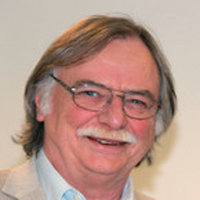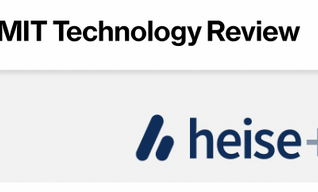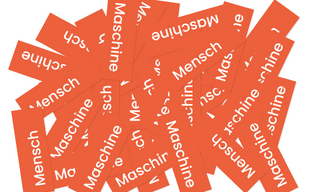
Hanns-J. Neubert
Hamburg
-
Noch keine BeiträgeHier wird noch geschrieben ... bitte schaue bald nochmal vorbei

Hanns-J. Neubert
-
biotechnologie
-
chemie
-
afrika
-
biologie
-
estland
-
finnland
-
klima
-
meeresforschung
-
nanotechnologie
-
norwegen
-
reisen
-
schiffbau
-
schweden
-
technik
-
umwelt
-
wissenschaft
-
meer
-
klimaforschung
-
geowissenschaften
-
schiffe
-
meerestechnik
-
wissenschaft gesellschaft
-
wissenschaft & forschung
-
gentechnik
-
nano
-
skandinavien
-
vorträge
-
reportagen
-
projektmanagement
-
projektkommunikation
-
projektentwicklung
-
projektpartner
-
europäische union
-
european union
-
maritimes
-
offshore
-
schiffssicherheit
-
rettungsboot
-
afrikanische union
-
technik in afrika
-
wissenschaft in afrika
-
wirtschaft in afrika
-
subsahara-afrika
-
umwelttechnik
-
klimawandel
-
klima und wetter
-
klimawissenschaft
-
klimaänderung
-
biotechnology
-
geomar
-
geothermal
-
hanns-j. neubert
-
stadtentwicklung
-
stadtplanung
-
smart city
-
stadterneuerung
-
forschungsförderung
-
entwicklungsland
-
medizintechnik
-
wissenschaftskommunikation
-
technikkommunikation
-
beratung für forschungsprojekte
-
beratung für kommunikationsprojekte
-
forschungsprojekt
-
unternehmensporträts
-
unternehmenskommunikation
-
unternehmensblog
-
unternehmenstexte
-
kundenmagazin
-
magazin
-
magazingeschichten
-
magazinbeiträge
-
magazinjournalismus
-
mitarbeitermagazin
-
kundenmedien
-
kundenzeitschrift
-
corporate blogging
-
corporate publishing
-
corporate communications
-
corporate content management
-
corporate blogs
Web (ScienceComments):
http://www.sciencecom.eu
Bio:
Wissenschaftsjournalist, Autor, Redner, Berater und Entwickler für Forschungsprojekte und Kommunikationsprojekte seit mehr als 30 Jahren
Die wesentlichen Interessensgebiete:
– Wissenschaft und Technik (generell)
– Meeres-, Klima- und Erdwissenschaften
– Biologie, Chemie und deren Randgebiete und Überschneidungen
– Marine Technologie, Biotechnologie
– Wissenschaft in der Gesellschaft, Gesellschaft in der Wissenschaft, Wissenschaftskommunikation, und das Dreieck Information, Wissen und Blidung
– Reisen, Orte und Natur
Akademischer Hintergrund:
– Biologischer Meereskundler (Universität Kiel)
Erfahrungen:
– Meeresforscher
– TV
– Mitgesellschafter, Regisseur und Autor der früheren Dokumentarfilmproduktion »Hammes & Neubert«
– Pressesprecher beim Bundesforschungsministerium (zuständig für das einstige Bundesinstitut »Biologische Anstalt Helgoland«)
– Gutachter bei der EU-Kommission (Verbreitung von Forschungsergebnissen, Wissenschaft in der Gesellschaft, Bewertung von Forschungsprogrammen der EU)
– Mitglied einer Reihe von Jurys für Wissenschaftsjournalistenpreise
– Berater für Wissenschaftskommunikation bei forschungsintensiven Unternehmen
– Dozent für Technikredakteure und Mentor für afrikanische Wissenschaftsjournalisten
Ehren:
– Vorsitzender (2001-2012) der Journalistenvereinigung für Technisch-Wissenschaftliche Publizistik TELI
– Vizepräsident (2004-2008) der Europäischen Union der Wissenschaftsjournalistischen Verbände EUSJA
Präsident (2008-2012) der EUSJA
– Vorsitzender (2012/2013) des Internationalen Beraternetzwerks für den Weltkongress der Wissenschaftsjournalisten 2013 in Helsinki
– Stipendium für Wissenschaftsjournalismus der Robert-Bosch-Stiftung (1981)
– Fellow der Europäischen Initiative für Wissenschaftskommunikatoren EICOS der Max-Planck-Gesellschaft (2001)
Mögen:
– Reisen, Segeln; Ozeane, Meeresküsten und kleine Inseln
Auftraggeber
heise.de , me2be.de , private-wealth.de , t3n.de
Weitere Profile
Fehler!
Leider konnte der Artikel nicht gefunden werden.
We can't find the internet
Attempting to reconnect
Something went wrong!
Hang in there while we get back on track









